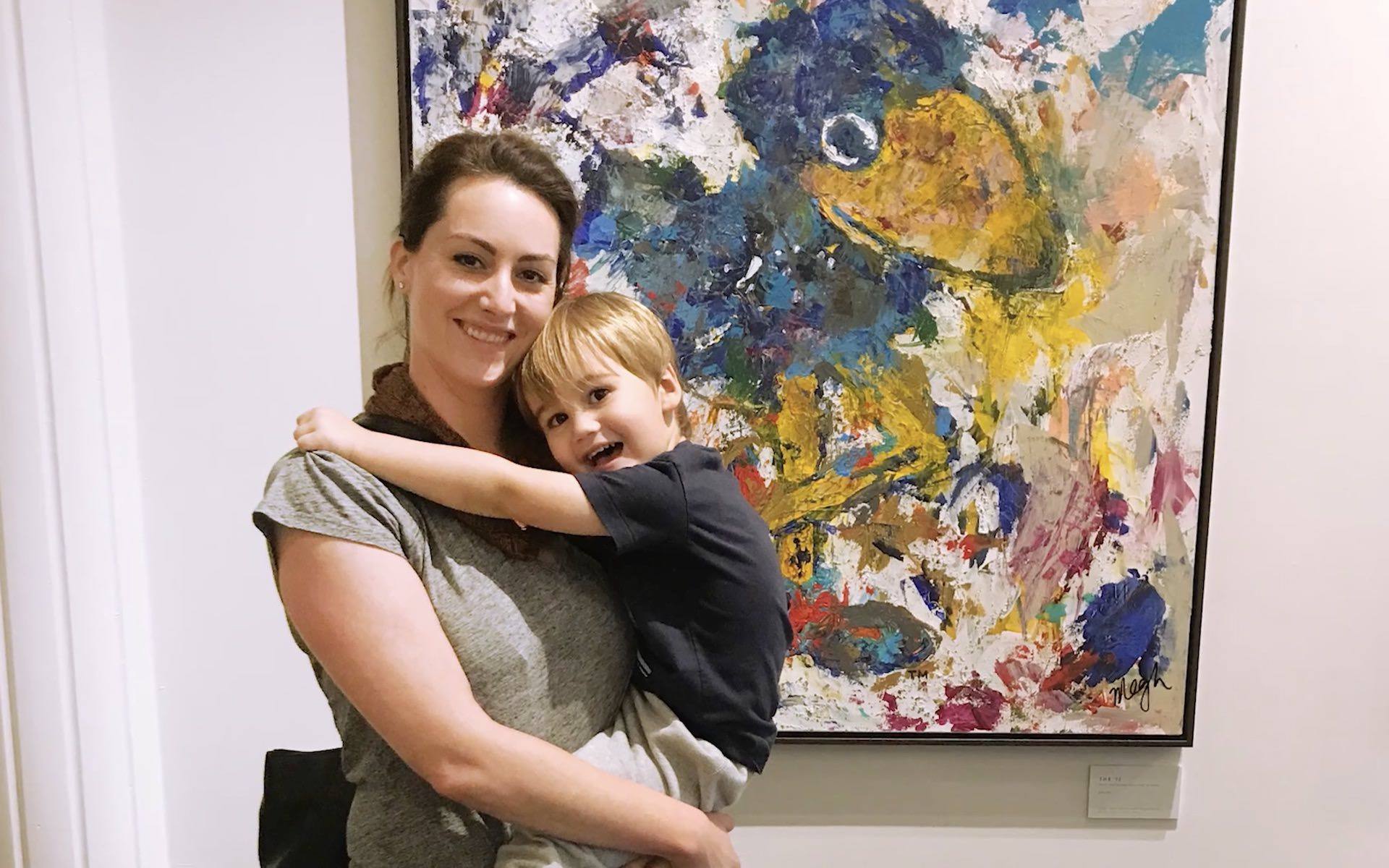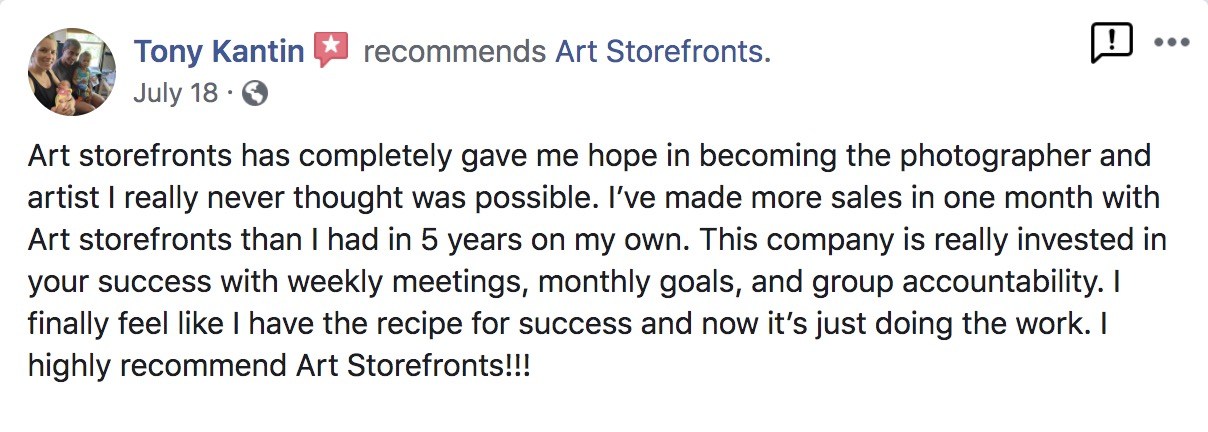The Success Mindset [Part 3]
Preparing for the Emotional Rollercoaster
NOTE: This is Part 3 of our series The Success Mindset. Here's how to get caught up:
→ Part 1: How the Quality of Your Thinking Can Make or Break You
→ Part 2: Positive Mental Fuel for the Journey to Your “Desired Outcome”
I want to give you an inside look at some of the feelings I have had in the earlier stages of running/growing my businesses.
- There have been at least a dozen times that I've felt I might be better off shutting the business down.
- There were times when I felt like a total failure. Like I had wasted a ton of time.
- There were times when I felt like a genius, and then, literally the next day, a complete fool. This still happens a lot, actually.
- There were times where the stress of the business was completely overwhelming - pushing me past my breaking point.
- Times when the stress of my business had caused me to be a worse person to my wife, my kids, my colleagues, and pretty much everyone that I encounter.
Thankfully, I did not shut these businesses down and give up early.
Some of these businesses that caused me the most grief early on - the ones that sometimes seemed to have no light at the end of their tunnels - ended up earning over 8 figures in revenue (tens of millions).
At one point, it was crazy to look back and think “how did I manage to make this happen?”.
With more experience (and repeating the whole process over a time or two), I realized that this is just how it goes - for everyone.
What is actually crazy is to think it will be anything other than an emotional roller-coaster.

I know a ton of other entrepreneurs, and I've asked them about this – we all experience the same thing.
I've looked even further - to billionaires like entrepreneur and renowned venture capitalist Marc Andreessen:
“First and foremost, a start-up puts you on an emotional rollercoaster unlike anything you have ever experienced. You flip rapidly from day-to-day – one where you are euphorically convinced you are going to own the world, to a day in which doom seems only weeks away and you feel completely ruined, and back again." – Marc Andreessen
Nobody has it easy. Nobody is different. And nobody manages to avoid the emotional rollercoaster.
And, of course, that includes you. If you haven't felt these things already as an art entrepreneur - brace yourself, because you will at some point!
That's why I wanted to write these thoughts down for you.
I used to feel like a complete weirdo for all the strange and unproductive thoughts that would go through my head. This would happen randomly, at all times, pretty much every day.
I want you to know that this is normal. And because you now know this, you will have more mental strength when these thoughts do arise.

Instead of them controlling and influencing you to make bad, panicked decisions, they will have less and less power over you. Instead of being surprised when these feelings come, I want you to expect them to come.
I want you to be mentally tougher than I ever was just by having this advance knowledge.
I cannot tell you how much I wish I knew this information early on in my career. It could have saved me a lot of strife, relationships, and mental energy.
“Running a start-up is like chewing glass and staring into the abyss. After a while, you stop staring, but the glass chewing never ends.” - Elon Musk
How do I manage to chew the glass?
In my weakest moments, I always try to be reasonable and focus on the positives.
I tap into the reserve of mental fuel I have from Small Wins, and by revisualizing my Desired Outcome.
At first, because no one had given me any guidance on this, I was doing these things in my head in a very scattered way. Even subconsciously at times.
But it worked. It gave me just enough energy at the right moment to not give up, and to serve as sort of a bridge until I made it to my next Small Win.
Today, rather than using that scattered approach to this process, I am very methodical about it.

During these tough times, you want to think about all the progress you have made.
Think of the happy customers you have created. Think of the people who thanked you in an email, or wrote a positive comment on your Instagram post. Those are the people you added value to. Had you not existed, those moments would have never happened in their lives.
Think about how much you have learned and grown as a person. These are your Small Wins. Take a moment and actually write them down.
The process of writing these down is not trivial. It will force you to see how your mind is working on paper. It will program your mind to be more realistic about what is going on.
The bigger the list, the more detail you have, the more you will feel better. When you feel better, you gain just enough mental fortitude to push through.
Next, go back to your Desired Outcome that you wrote down (you did this, right?). Read it. Take some time to visualize it again in your mind. This will remind you why you are here, why it is all worth it.
Overall, if your business is resulting in making other people happy (i.e. your customers), then you are on the right track in some way. You just need to create more of them, and you need to find a way to do that economically. It is no more complicated than this.
If your business is not resulting in happy people, you may need to make a change.
With that said, it can be easier said than done to just turn off any negative feelings. So, attack them as best you can using your Desired Outcome and Small Wins, but if you truly cannot get out of the despair of the moment, that's okay too.
This still happens to me all the time which means it will happen to you. Don’t overly stress about it. You may just need some exercise, a good meal or a good night’s sleep to feel better tomorrow and create a new Small Win. Or, it may take a few days. But that is all you need to turn things around.
Just put one foot in front of the other, and get back on the path to creating and celebrating Small Wins.
If you need some emotional support, go into the Small Wins group and ask a question.

Does it get any easier?
Yes. A LOT easier.
Building a great business is a long process of incremental optimization towards perfection. Over time, you do more good things, and less bad. This is why things eventually do get easier. You just screw up less and make a lot more people happier. Each step, your financial results improve, and your stress levels drop.
But that won’t happen until somewhere between years 3 and 5. Until then, things will feel uncomfortable. Uncomfortable is what it feels like when you are truly growing as a person. This is good.
Why does it take 3-5 years? Because it takes time to discover a repeatable business model that works for you.

One that results in happy customers and consistent income. You need to learn how to market to your leads and customers in a way that most pleases them, yet also in a way that is still profitable for you. You don’t know how to do this yet, and you can’t learn this overnight.
As I have said before, this will be an amazing process of personal growth. On your way to success, you will learn how to make more and more people truly happy as a result of your art. Isn’t that amazing?
“Whenever I meet a successful CEO, I ask them how they did it. Mediocre CEOs point to their brilliant strategic moves or their intuitive business sense or a variety of other self-congratulatory explanations. The great CEOs tend to be remarkably consistent in their answers. They all say: ‘I didn’t quit.’“ - Ben Horowitz
This quote is undoubtedly one of my favorites, and I end with it for a reason: most small businesses fail because people quit.
Not because the business truly cannot make it, but because the people involved weren't prepared for the emotional rollercoaster.
I believe that by equipping yourself with a stronger mindset, you will dramatically increase your chances of succeeding – far more than any feature, process, or tactic ever will.
Nick Friend is an owner of Art Storefronts and a success mentor to its members.
He carries with him 18 years of industry experience, and is committed to building a world in which artists are the ones who profit most from their work.
Learn more in Nick's full bio.
Read the letter Nick sends to every new Art Storefronts customer on Day 1 »
Related Posts
Art Storefronts Is the All-In-One Art Business Solution
We help photographers and artists open and run their own art gallery business, online.
Your Own Website
Best-in-class software built from the ground up specifically for photographers and artists.
Back Office Tools
Spend less time on paperwork, and more time creating.
A Marketing Plan
Skip the frustration – we'll teach you what's actually working for photographers and artists.
What Our Customers Are Saying



Sell More Art With Augmented Reality
An augmented reality tool purpose-built for artists and photographers. You'll sell more art than ever when your buyers can see what your work will look like on their walls – straight from your website (no app downloads required!).
Get Art Marketing Advice Sent to Your Inbox
Enter you email address below and we'll keep you up-to-date on all the latest and greatest art marketing strategies and tactics.


